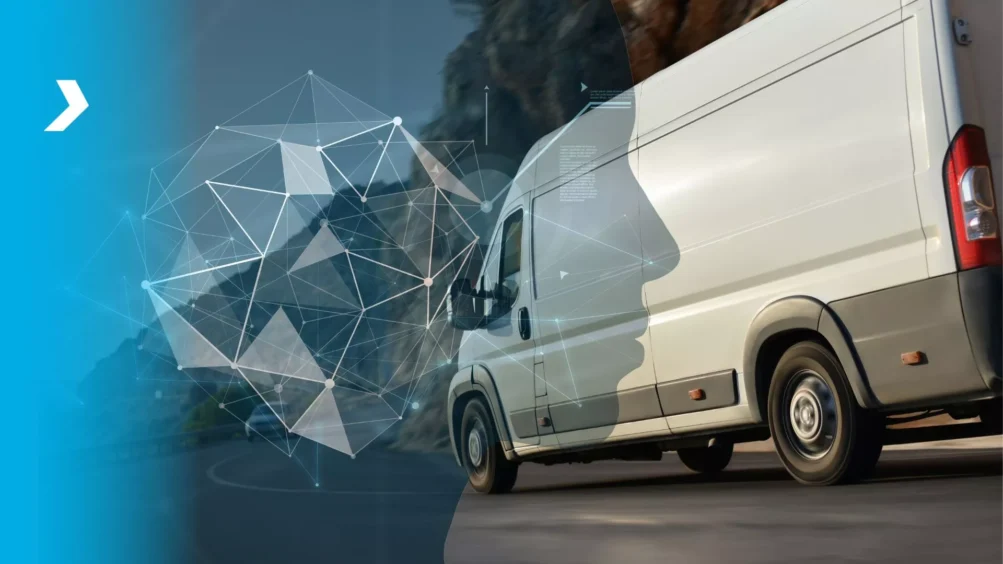
Transforming Freight Logistics with AI
Artificial intelligence (AI) has swiftly evolved from a mere technological tool to a powerful driving force, pushing the boundaries of possibility across various industries. The freight sector is no exception. Embracing this AI-driven era, logistics providers are witnessing a surge in innovations that help address longstanding challenges and unlock new efficiencies.
AI Applications in Logistics
AI is revolutionizing logistics with applications that streamline processes and enhance efficiency. Its implementation reach extends, but is not limited, to the following:
Forecasting
AI algorithms analyze tons of historical data, market trends, and other external factors to predict demand with remarkable accuracy. Thanks to these well-thought-out algorithms, brokers can manage inventory better, reducing stockouts and overstock situations.
Warehouse optimization
Advanced systems use AI to manage inventory, optimize storage layouts, and automate picking processes. The benefits are faster order processing, reduced operational costs, and expedited delivery services.
Autonomous vehicles
It’s no secret that self-driving trucks and drones are being tested worldwide to handle deliveries. These technologies promise to reduce human error, lower transportation costs, and improve delivery times.
Customer service
Although we all don’t like talking to chatbots and virtual assistants, they can provide immediate responses to customer inquiries, track shipments, and offer personalized recommendations. This allows businesses to free up human resources for more complex tasks.
Route optimization
AI can analyze traffic patterns, weather conditions, and other variables on the fly to suggest the most efficient delivery routes. As a result, businesses enjoy reduced fuel consumption and timely deliveries.
Benefits of Implementing AI
AI brings numerous benefits to the logistics industry, allowing businesses to maintain a competitive edge.
- Improved overall efficiency
AI-powered systems can process vast amounts of data quickly, identifying patterns and making real-time decisions like no one can. For example, AI algorithms can analyze real-time traffic data and weather conditions to determine the fastest delivery routes, ensuring that shipments arrive on time while reducing fuel consumption.
- Cost reduction
By automating routine tasks and optimizing processes, AI helps lower operational costs. Automated systems can manage inventory more accurately, reducing the need for excess stock and minimizing storage costs. Plus, AI-driven predictive maintenance can identify potential equipment failures before they occur, reducing downtime and repair costs.
- Better risk management
AI systems can analyze data from various sources to predict potential disruptions, such as supply chain bottlenecks or delivery delays. With these data on hand, brokers can take proactive measures to mitigate risks, ensuring smoother operations and more reliable service for their clients.
- Enhanced decision-making
Advanced analytics can identify trends and patterns that may not be immediately apparent, helping brokers make more informed decisions. Such AI tools also improve strategic planning and resource allocation.

Challenges of Implementing AI
Challenges are another side of AI. While the benefits of AI are undisputed, implementing these technologies presents several challenges.
Data integration
AI systems rely on vast amounts of data from various sources. Integrating this data into a cohesive system can be complex and time-consuming. Inconsistent data formats and legacy systems can hinder the seamless flow of information, affecting the accuracy and efficiency of AI applications.
High cost
Developing and deploying AI technologies can require substantial financial investment. Small and medium-sized enterprises may find allocating the necessary resources for AI adoption challenging. However, the long-term cost savings and efficiency gains often justify the initial expenditure.
Resistance to changes
Employees may be wary of new technologies, fearing job displacement or unfamiliar processes, which can slow down the adoption of AI and limit its effectiveness. To address this resistance, companies should invest in training and education, highlighting the benefits of AI and how it can enhance rather than replace human roles.
Complexity of AI technology
Implementing AI requires specialized knowledge and skills, which may not be readily available within a company. However, partnering with technology providers or hiring skilled professionals can help overcome this hurdle, ensuring that AI solutions are implemented correctly and effectively.
Key Trends and Insights in AI for Logistics
AI is increasingly shaping the logistics industry, constantly producing new trends and insights.
- Predictive analytics
AI-driven predictive analytics tools are becoming more sophisticated, allowing companies to forecast demand, anticipate disruptions, and optimize operations. Thus, according to a study by McKinsey, companies that leverage AI for predictive analytics can reduce forecasting errors by up to 50%, significantly improving inventory management and reducing costs.
- Autonomous vehicles and drones
These technologies promise to revolutionize the logistics sector by reducing delivery times and costs. A report by PwC estimates that autonomous vehicle technology could save the logistics and transportation industry up to $300 billion annually by 2030.
- AI-controlled warehouses
From automated picking systems to robotic sorting, AI is enhancing warehouse efficiency. Thus, research by Gartner suggests that in a couple of years, robots and AI will perform 50% of all warehouse activities.
- Virtual assistants
As mentioned earlier, AI-powered chatbots and virtual assistants provide real-time support, handling inquiries and resolving issues often better and quicker than humans. According to IBM, businesses using AI for customer service can resolve issues up to 60% faster while reducing operational costs.
- Internet of Things (IoT)
Combining AI with IoT devices allows for real-time tracking and monitoring of shipments. This integration provides brokers with valuable insights into the condition and location of their cargo, enhancing transparency and efficiency.
The Future of AI in Logistics
The future of AI in logistics looks promising, with potential advancements poised to revolutionize the industry further.
Autonomy almost everywhere
As AI technology advances, we expect to see more self-driving trucks and drones integrated into logistics networks. These innovations promise to reduce human error, lower transportation costs, and ensure faster deliveries.
Real-time data predictive systems
Advanced AI systems will be able to process vast amounts of data instantaneously, providing real-time insights and recommendations. This capability will enhance supply chain visibility and allow brokers to respond to disruptions more effectively.
Integration of AI with blockchain technology
Combining these technologies will significantly enhance transparency and security in the supply chain. Blockchain’s immutable ledger, paired with AI’s analytical capabilities, will provide unparalleled traceability and fraud detection, ensuring the integrity of shipments from origin to destination.
AI-driven sustainability
AI can optimize routes and loads to reduce fuel consumption and emissions, contributing to greener logistics practices. As environmental concerns grow, adopting AI for sustainability will become increasingly important for logistics companies.
Predictive customer support
Extremely fast personalized services with efficient problem resolution will become standard, driven by advanced AI algorithms. AI will handle the lion’s share of human jobs, providing a high level of support.
Conclusion
AI is already transforming the logistics industry, offering significant benefits while also presenting several challenges. Despite the latter, AI advantages far outweigh the hurdles. As AI technology continues to evolve, its impact on logistics will only grow, driving innovation and enhancing service throughout the industry.
You May Be Interested In
How to Expedite and Recover LTL Freight Efficiently
Sharing a truck’s space isn’t the best idea when your goal is rapid delivery, making less-than-truckload (LTL) shipping annoyingly slow. However, slow speed is only part of the problem. LTL freight is accompanied by plenty of challenges, running the gamut from a high risk of damage or loss and complex coordination to a lack of […]
Set pricing in Expedited Freight Shipping: What are the benefits?
The struggle between maintaining low transportation costs and ensuring dependable carrier capacity is as old as the logistics industry. Brokers continually grapple with the dual challenge of minimizing transportation costs without compromising speed, service, and carrier capacity…